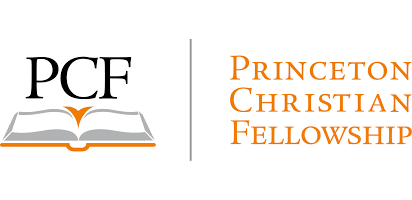

Term – Evangelical — is “increasingly either confusing, or unknown, or misunderstood to students,” says director.
(By Kate Shellnut, Christianity Today). More than 80 years ago, the first president of Princeton Evangelical Fellowship aspired for the organization to allow students “to enjoy Christian fellowship one with another, to bear united witness to the faith of its members in the whole Bible as the inspired Word of God, and to encourage other students to take, with them, a definite stand for Christ on the campus.”
In 2017, the Ivy League student ministry remains fully committed to this purpose … just without calling themselves evangelical.
The long-running organization changed its name this year to become Princeton Christian Fellowship, citing baggage surrounding the evangelical label.
“There’s a growing recognition that the term evangelical is increasingly either confusing, or unknown, or misunderstood to students,” the organization’s director, Bill Boyce, told The Daily Princetonian.
It’s not an issue limited to the 8,000-student campus; a number of evangelicals across the country share his concerns, particularly after last year’s election linked evangelical identity with support for President Donald Trump in the public eye.
Princeton Christian Fellowship began discussing its name change prior to Trump’s election, though the decision was officially voted into place in May and announced at the start of this school year, the school paper wrote.
“We’re interested in being people who are defined by our faith and by our faith commitments and not by any sort of political agenda,” said Boyce, who has led the campus group since 1985.
Princeton Christian Fellowship’s decision corresponds with younger Christians’ draw to institutions that focus on Jesus and downplay labels, according to Kara Powell, executive director of the Fuller Youth Institute.
“I don’t see it as a negative move,” said Powell. “Anything that puts Christ in the title is something that I applaud, especially because as I see organizations using the term evangelical less, they’re still adhering to core principles.
Related article: Princeton Christian Fellowship Ditches the Label ‘Evangelical’, by Rebecca Ngu, The Daily Princetonian
Listen to Carmen discuss this issue on her radio show The Reconnect with Carmen LaBerge. (discussion begins at the 42:00 mark)
5 Comments. Leave new
Well, at least they are honest. If they are not “evangelical” especially in the biblical sense of proclaiming the good news of Jesus Christ, best not to keep that title. However if they are not “Christian” in that they are following Jesus Christ as He is revealed in Holy Scripture, they should not call themselves “Christian” either. How about the “Big Tent Fellowship”? That would be very clear and precise as to what they believe. Or how about “Universalist Club”? Wait, they probably already have a club that defines that name.
I guess this is one area of loss that Tom Tancredo didn’t cover in his otherwise excellent essay “Do You Miss America?” (http://www.breitbart.com/big-government/2017/10/12/tancredo-do-you-miss-america/ ). Don’t decry the source; read the essay.
Bill Boyce may have overstated the modern distortion of the word evangelical, but perhaps not in his context. That aside, I think it’s unfair to hold the PCF to a higher standard than other evangelical organizations that don’t use the term in their name either, including The Presbyterian Lay Committee and The Layman. Many faithful student organizations have never used the word evangelical in their name and have remained unequivocally evangelical. Think IVCF, Cru, and RUF.
Is this a “distortion”
“The word ‘evangelical’ has a long history in the United States that typically implies a core set of doctrinal beliefs. Such tenets include belief in the authority and inspiration of the Bible, centrality of the death and resurrection of Jesus Christ, and the free offer of salvation through faith, according to Boyce.”
The Princetonian states “‘Evangelical’ has officially become a bad word. ” TO WHOM?? Maybe its an understatement. It really describes what 2000 years of Christianity taught as the beliefs of Christians. (Read your confessions and creeds!!!) It is only a “bad word” to those who have rejected the bible, the resurrection of Christ and salvation by faith alone. I don’t call them “Christians”. I call them “LIBERALS”.
[…] After 80 Years, “Princeton Evangelical Fellowship” Drops ‘Evangelical’: Becomes “Princeton… (Layman.org) […]